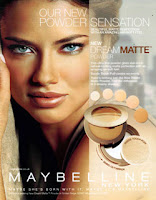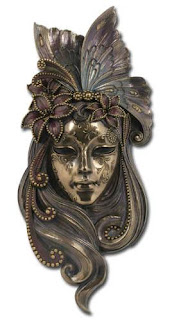
From gradual tanning products to botox to boob jobs, the beauty and cosmetics industry in the UK alone is worth over £539million. With all these products promising us an easy (if costly) route to ‘perfection’, who wouldn’t be drawn in by such sparkly ad campaigns? Maybe you weren’t born with it… But is it really possible for Maybelline to give you a helping hand? After all, what is ‘perfection’? And how is ‘perfection’ achievable if we are all individual?
The Construction of Identity
To understand the idea of perfection it’s important to look at the construction of identity and how it relates to cosmetics in the form of a masquerade. It is widely accepted by theorists such as Goffman, Butler and Foucault that identity is always something that is done – it is achieved rather than innate. This is supported by social research on the body, finding that there is not natural prediscursive body and therefore identity.
For hundreds of years, the body has been used as a tool for grounding difference, it is a marker used to illustrate individual identity and the membership of a wider socio-cultural group. Identities are, by this very purpose, social identities: we find differences and therefore meaning in the world around us by constant comparisons. The use of cosmetics is one way in which we are able to visibly inscribe our identities (true or otherwise) onto our bodies.
Authenticity
As I have mentioned before in my previous post on the idea of the masquerade, the use of cosmetics and clothing to put forward an impression of ourselves to the world. In the West people have a tendency to counterpoise BEING an identity against DOING an identity; in other words, are you being yourself or are you playing a character?
It is this gap between semblance and substance that creates a suggestion of inauthenticity and a woman’s (or man’s) use of makeup can be seen as a secret projection of their desired self-image – the identity they want everyone else to see. As Strathern explains, ‘this leads to the possibility of an antithesis between the body so decorated and the inner or whole person’. However, theorists such as Park and Bennett believe that this mask is an extension of our true selves, ‘She can… let her true self emerge from the shadows’ (Park).
These arguments throw up two very important questions: firstly, is the idea of adopting a mask acceptable if it means that we can assume and put forward characteristics we see as our own? Or does emphasising these characteristics physically through the use of cosmetics remove the authenticity that they would otherwise hold?

Performance & Society
Performance and the idea of a public image are aspects that have driven how we dress and use cosmetics for hundreds of years. Goffman’s theory on ‘front stage’ and ‘back stage’ suggests that when we are aware of an audience we play to them, meaning that the identity we are performing risks not being entirely truthful.
This performative concept suggests that identity is formed through repeated and rehearsed public acts; we present an image of ourselves to be accepted by others. However, as I have previously mentioned, the widely held idea that our identities are formed by society and experience means that there is a high likelihood that as society changes over time, our identities can never fully develop. This translates directly to the idea of ‘perfection’; as society changes, so do our ideas of ‘perfection’ and this constant change means that there will always be constraints in this quest.
Post-feminist Masquerade
In these post-feminist times, women are encouraged to be independent and self-reliant, they construct life plans and strive to succeed in all areas of their lives – particularly their careers. However, as Rose explains this gives women the impression that everything in life can (or should be) controlled, ‘she is thus an intensively managed subject’. By micromanaging everything in their lives, women believe that if they manage themselves through their make up and clothing, they can make ‘perfection’ attainable.
While the theory surrounding the masquerade is full of feminist thoughts on the substitution of masculine control by the influence of the beauty industry, the point made above is a valid and important one. Perfection is a theory: a myth rather than reality. It exists only in people’s minds and opinions – like the old saying beauty is in the eyes of the beholder – and like society and the individual body, it changes over time. Nothing in life is ever fixed or permanent and ‘perfection’ is never, even remotely, attainable.








